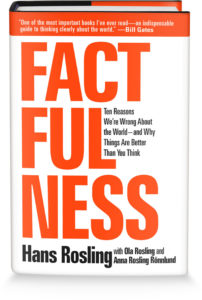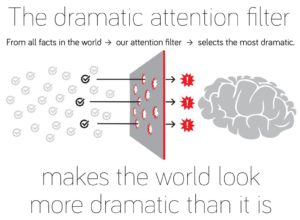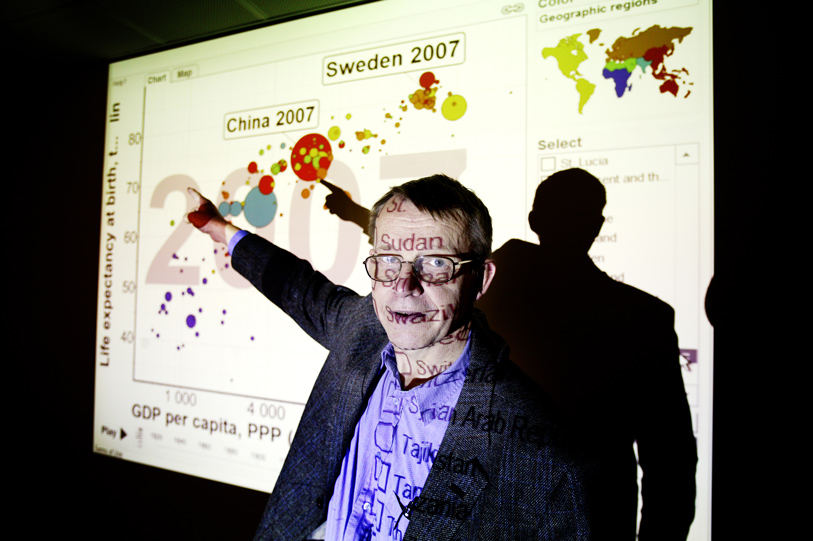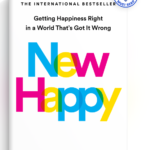When my friend Lars handed me, a book called Factfulness by Hans Rosling, I didn’t realize how little I knew about world facts.
Things like people escaping poverty, schooling for women and even mortality rates in third-world countries tend to be significantly more improved than you think and the book outlines ten key reasons why most of us get the information wrong.

Getting a book endorsement by Bill Gates and Barack Obama also caught my eye since they are both known for being an avid reader and rarely recommend anything that isn’t spectacular.
Gate said of this book, “One of the most important books I’ve ever read – an indispensable guide to thinking clearly about the world.”
President Obama said, “A hopeful book about the potential for human progress when we work off facts rather than our inherent biases.”
In the fact-free universe we live in today, I welcome some sanity and clear thinking.
Fact From Fiction
When asked simple questions about global trends, most of us don’t know too much.
What percentage of the world’s population lives in poverty; why the world’s population is increasing; how many girls finish school―we systematically get the answers wrong.
So wrong that a chimpanzee choosing answers at random will consistently outguess teachers, journalists, Nobel laureates, and investment bankers.
In Factfulness, the late Professor of International Health and global TED phenomenon Hans Rosling, together with his two long-time collaborators, Anna and Ola, offers a radically new explanation of why this happens.
They reveal the ten instincts that distort our perspective―from our tendency to divide the world into two camps (usually some version of them and us) to the way we consume media (where fear rules) to how we perceive progress (believing that most things are getting worse).
Our problem is that we don’t know what we don’t know, and unconscious and predictable biases inform even our guesses.
It turns out that the world, for all its imperfections, is in a much better state than we might think. That doesn’t mean there aren’t real concerns. But when we worry about everything all the time instead of embracing a worldview based on facts, we can lose our ability to focus on the things that threaten us most.
Inspiring and revelatory, filled with lively anecdotes and moving stories, Factfulness is an urgent and essential book that will change the way you see the world and empower you to respond to the crises and opportunities of the future.
An Example
How many girls in low-income countries finish primary school? 20%, 40% or 60%?
In most audiences, regardless of education, the overwhelming majority of people get the answer wrong. They typically don’t do as well as monkey’s who will guess right one out of three times. The answer is 60%, and it confounds the perception we have of the world.
Most of us share a worldview bias, and it distorts the facts that are readily available. When seen from the perspective of just a few decades, the progress is remarkable. It isn’t perfect, but it exceeds a misperception most of us share. Rosling doesn’t call for people to stop trying to improve the rate, but he wants the facts to inform the progress that has been made in just a few decades.
The author discusses ten key ideas that cause us to make errors even with the right data in front of us. He provides a lucid and precise way to see through instincts to arrive at more fact-filled insights.
Rosling talks about these ten instincts that misguide our impression of the world such as the Gap Instinct, The Negativity Instinct, The Straight Line Instinct and so on. By the end of the book, you have tools to view the world through a different lens and to check your instincts for inaccurate predictions.
Takeaways from Factfulness

- Numerous misperceptions shape our worldview as we hear stories that aren’t fact-based. When someone tells you a fact about the world, ask them – how do you know this is true? Perception management is the job of marketers to correct distorted worldviews that aren’t rooted in facts.
- Be open to new data that smacks you in the head and, if accepted, changes a world view you have. Let data be your friend, don’t resist it.
- Leaders need to anchor decisions in facts, even when they are antithetical to a common belief. Disruption, innovation, and invention occur not through predicting the future, but by seeing the facts right in front of our eye.
Looking for marketing advice to help you grow your business? I can help and that’s a fact. You can set up a time to chat with me about your marketing challenges using my calendar. Email me jeffslater@themarketingsage.com Call me. 919 720 0995. The conversation is free, and we can explore if working together makes sense. Try my new chat feature on my site if you have a quick question.
Photos and charts courtesy of Gapminder and Factfulness Media




